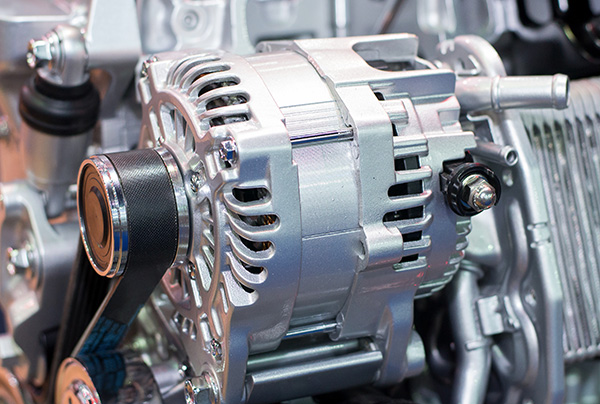
Your car’s alternator is one of those crucial components that often goes unnoticed—until it stops working properly. Responsible for powering the electrical system while your engine is running and keeping your battery charged, the alternator ensures that everything from your headlights to your radio works. But what happens when your alternator starts to fail? Recognizing the early signs of a faulty alternator can save you from unexpected breakdowns and costly repairs.
1. Dimming or Flickering Lights
One of the most noticeable signs that your alternator is failing is dimming or flickering lights. Whether it's your headlights, interior lights, or dashboard illumination, any irregularity in brightness often points to an alternator issue. The alternator is responsible for providing consistent electrical power to these systems. When it starts to fail, it can’t keep up with the energy demand, causing lights to flicker or appear dimmer than usual.
If you notice your lights acting strange, especially when you’re idling or accelerating, have your alternator checked out immediately. Ignoring this symptom could lead to a completely dead electrical system, leaving you stranded.
2. Electrical Malfunctions
Since the alternator powers your car's electrical system, any odd behavior in these components could be a sign of trouble. Are your power windows moving slower than usual? Is your car’s stereo suddenly cutting out or malfunctioning? These quirks could mean that the alternator is struggling to distribute power efficiently.
Your car may also exhibit problems with other electrical accessories, like heated seats, windshield wipers, or even your phone charger. When the alternator starts to fail, it may prioritize power distribution, giving certain systems more juice than others. This imbalance is a clear signal that your alternator needs attention.
3. Warning Lights on Your Dashboard
Modern vehicles are equipped with a warning light specifically for alternator problems. This light may take the form of a battery icon, but it’s actually an indicator of charging system issues. If you see this light illuminated on your dashboard, don’t automatically assume it’s a battery problem. A failing alternator could be the real culprit, as it can no longer charge the battery properly.
If the warning light comes on while you’re driving, your car is alerting you to an issue with the electrical system. Don’t wait for the battery to die completely—get your car inspected right away.
4. Unusual Sounds Coming from the Engine
Hearing strange noises coming from under the hood? A failing alternator can create a variety of odd sounds that signal trouble. A whining or grinding noise could indicate that the internal components of the alternator are wearing out. These noises often occur because of worn-out bearings or other internal failures within the alternator itself.
Pay close attention to any new or unusual sounds while the engine is running. If the noise seems to increase as you use electrical systems—like turning on the radio or headlights—it could be a sign that your alternator is struggling to keep up.
5. A Dead Battery
One of the more straightforward signs that your alternator might be failing is a dead battery. While the alternator keeps the battery charged, if it's not working properly, the battery won't receive enough power to stay fully charged. However, it's important to note that a dead battery could also be a standalone issue. The key difference? If the battery dies shortly after being charged or replaced, it’s likely the alternator that’s at fault.
If your battery is fairly new or still in good condition but keeps dying, the alternator might not be doing its job. It’s best to get both the battery and alternator checked by a professional to pinpoint the exact problem.
6. Trouble Starting the Car
Is your car slow to start, or are you hearing a clicking sound when you turn the key? These could be signs that the alternator is not providing enough power to the starter motor. Without a fully functioning alternator, your battery will slowly lose its charge, and you may struggle to start your vehicle.
If your car is hesitant to start or you hear clicking noises, get your electrical system checked before you're left with a car that won’t turn over.
7. Engine Stalling
Believe it or not, a failing alternator can also cause your engine to stall. How? The alternator powers the spark plugs, which ignite the fuel in the engine. If the alternator isn't supplying enough electricity to these components, the engine may struggle to run or stall out completely while you’re driving. This is a serious issue that can not only damage your vehicle but also put you in a dangerous situation on the road.
If your car starts stalling or sputtering, it’s time to take immediate action. Have the alternator tested to determine if it’s the source of the problem. Don’t wait for your car to stall in traffic!
Need alternator repair? Don’t wait until you’re stranded. Let the professionals at South Denver Automotive inspect your vehicle and keep you on the road. Call today to schedule an appointment!